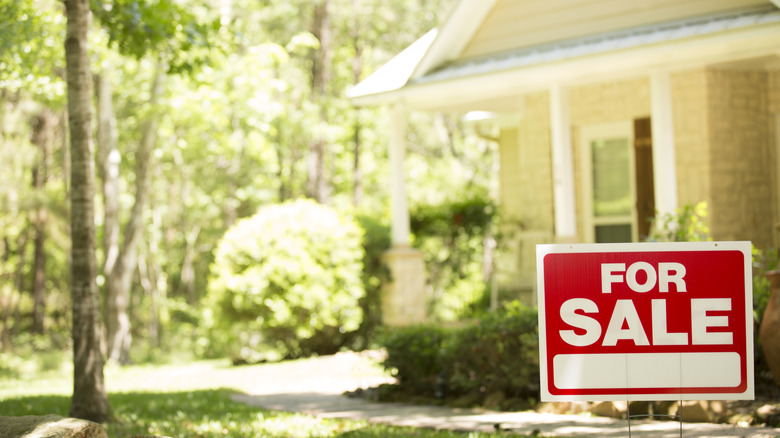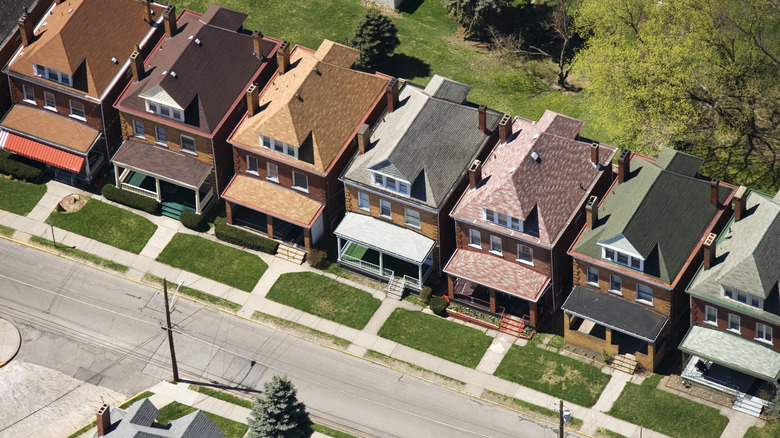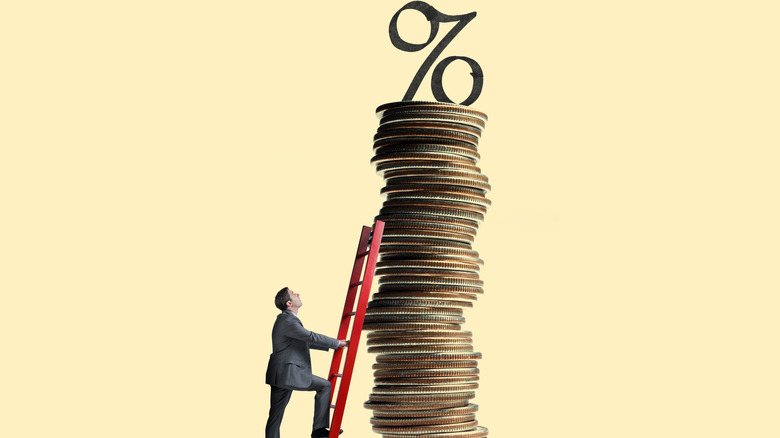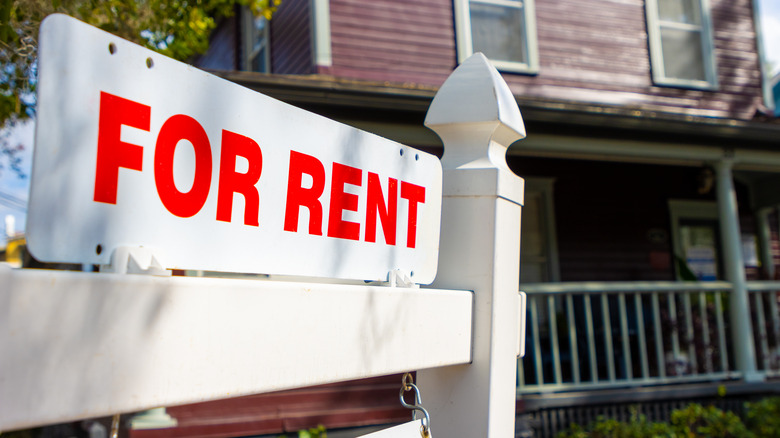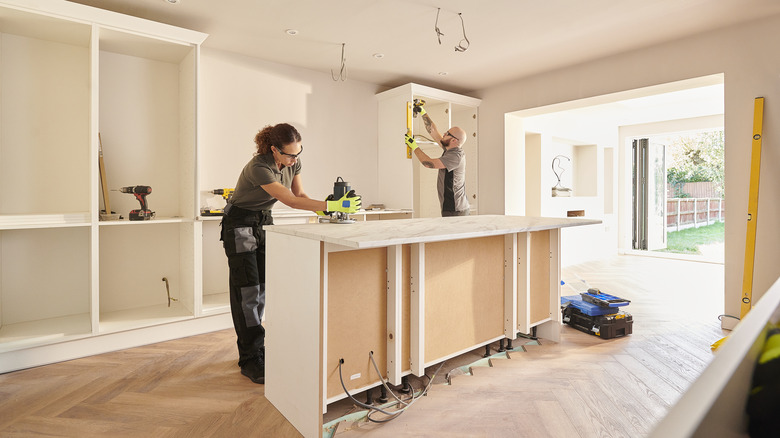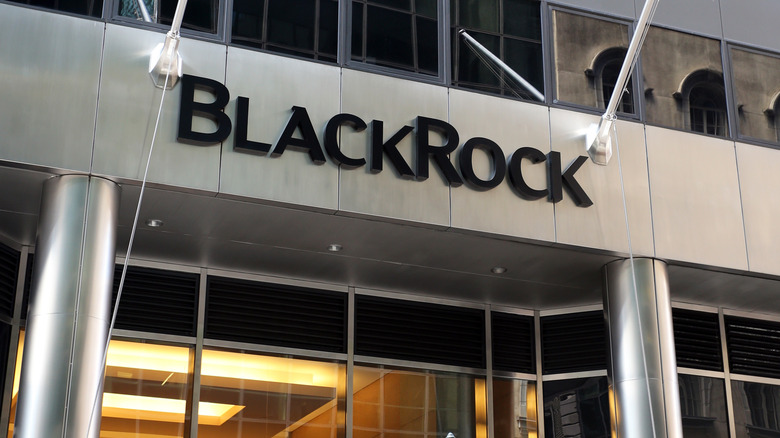What Will Happen To The Housing Market When The Boomers Begin To Die Out?
Baby boomers have long been a major economic factor in American life. Only recently overtaken as the largest contingent of living generational Americans in 2019 (by Millennials), estimates suggest that Boomers are headed toward a precipitous drop in numbers over the next 20 to 30 years. This is a natural feature of population change, of course, but it creates some interesting what-ifs that economists and average consumers must grapple with — more so than might occur with any other generation. Named for the explosive population growth that took place after the Second World War, Baby Boomers transformed the landscape of U.S. domestic thought. With so many new people coming into the nation's fold, Boomers have continuously been at the forefront of policy agendas and moved the needle on culture, social norms, and civil society.
But the oldest Boomers today are well into their retirement years and the youngest aren't far behind. It's only natural to wonder what comes next once the generation starts to die and pass on knowledge, property, and example to their loved ones. The housing market is one particularly consequential piece of this puzzle, but experts are somewhat mixed on what Boomer passing will mean for the future of American real estate. Some visions are tinted with a bit of rosiness while others predict a decent measure of doom and gloom. Either way, many interesting realities will likely present themselves once this inevitability eventually unfolds.
Older Americans combine to own around $19 trillion in real estate
Perhaps the most important aspect of this phenomenon is that Baby Boomers own a gigantic share of the American real estate marketplace. The $19 trillion and combined real estate holdings that Boomers own totals around $5 trillion in assets over that of their children (Gen X). Older buyers have invested heavily in the real estate marketplace, not just to secure their own living space but also in rental properties, vacation homes, and elsewhere as part of a thriving collective savings portfolio. Boomers grew up in a world where working hard resulted in quality salaries and affordable necessities, like housing. The world has changed since the 1960s and '70s, though, with wages stagnating and inflation continuing to kill off wealth.
The vast war chest of real estate holdings possessed by older Americans led economists and market speculators to worry intensely about what the future holds for real estate. Whether by downsizing or dying, Baby Boomers and by extension, their beneficiaries, are currently in possession of a hot commodity that likely to transform the marketplace.
Boomers will begin to leave their homes over the next two decades
The youngest Baby Boomers are currently 60 while the oldest contingent is celebrating its 78th birthday. Like all generations, this dispersion means that some Boomers are experiencing a different phase of life than others, some having been retired for roughly a decade. Over the next 20 years, Baby Boomers will begin to think about what their final act will be. For some, these older years will mean moving into a smaller home or changing scenery altogether to enjoy a more relaxing lifestyle.
Analysts aren't unified on what this demographic change in America will hold for the real estate market. Death isn't the only feature of life that will prompt Baby Boomers to sell their homes, and there is a divergence over whether the future will experience a "Silver Tsunami" or more of a glacial market drift. Either way, in the coming two decades older Americans and their beneficiaries will be forced to reckon with the allocation of this $19 trillion market. Experts appear more confident in a slow reallocation of wealth rather than a change all at once, but this position is far from crystallized.
Even so, there isn't likely to be a flood of new homes on the market
Regardless of whether Baby Boomers sell their homes in a crush of new real estate listings or more slowly, there isn't likely to be a major shift in the real estate market as a result of Boomer activity. Reporting suggests that around 4.4 million homes will be affected each year until 2032 by the death of a member of the Baby Boomer generation. But the same forecasts also estimate that only about 250,000 units will be added to the market annually. Essentially, what this means is that Baby Boomers' homes won't radically transform the outlook of the housing market in any substantive way for buyers. Estimates suggest that around 20% of these homes will be converted into rental properties and many more continue to house surviving spouses or other family members rather than going to market.
For anyone hoping to burst into homeownership on the back of a major demographic shift, this is abysmal news. However, it's not surprising that major change isn't lurking just around the corner. Spouses and other beneficiaries may feel a sentimental attachment to the homes left to them, and barring a catastrophic event, a mass die-off of older, homeowning Americans isn't consistent with reality.
Interest rates look to remain high, making purchasing opportunities limited
A minor blip in the real estate marketplace isn't the only reason why Baby Boomers' homes aren't likely to amount to a giant shake up. In addition to the relatively marginal influx homes for sale, forecasts predict that high interest rates will remain the norm in the mortgage marketplace. This means anyone looking to buy a home will find themselves spending more than they might like over the long term on a real estate purchase. Sellers make up half the market, but if buyers aren't willing to meet them because moving would introduce a much higher interest rate to the repayment schedule, then a transformed marketplace won't appear. With interest rates remaining at some of the highest figures experienced in recent memory, 6.96% as of March 27, 2024, on 30-year fixed-rate mortgages, buyer interest in real estate properties is almost certain to remain relatively depressed.
On the other hand, the rental market may become more fulfilling
There are bound to be periods of real estate trading where supply outpaces demand, but this doesn't appear poised to become a consistent feature in a timeline of diminishing Boomer ownership. There will instead likely be a series of waves that see supply gradually rise and fall. Throughout this time, however, it's highly anticipated that many homes falling under this general category will become rental properties instead.
Rental properties make for a quality retirement asset, specifically. Those inheriting homes from Boomers are often going to be adults creating their nest egg in advance of leaving the employment marketplace. The somewhat hostile real estate market paired with the rental income that an inherited property can provide instead may be strong motivating factors that push more new owners toward this model. The change in outlook is also beneficial to those hoping to continue renting. Homeownership isn't going to offer a comprehensive benefit to everyone, and for some, maintaining a rented apartment or home is the better financial choice. An influx, even in drips, of rental properties will make the space more fulfilling to younger people looking to save up for a home, or those who have decided against buying a home altogether.
Gen Z buyers will benefit the most, with Millennials missing out, again
In terms of sales, Gen Z buyers are set to inherit the best market conditions. With a bulk of changes taking place in the coming 20 years, Millennial buyers will have aged out of the primary demographic of the first-time home buyer. Gen Z members, on the other hand, are between 12 and 27 years old in 2024, making them (and older Gen Alphas, as well) perfectly situated to get in on the action while taking advantage of federal programs for first-timers.
Jeanna Smialek calls those born in 1990 and 1991 'Peak Millennials' in an analysis of the generation more broadly for The New York Times. In her reporting, she notes that the Millennials have largely fallen between favorable conditions throughout their experience. The oldest in the nation's now-largest age demographic were working professionals hoping to purchase or maintain their first homes when the economy melted down in 2008. And every Millennial had graduated into the workforce when the pandemic took hold and, once again, threw the economy into a tailspin. In contrast, those falling into Gen Z can take solace in the fact that they will be in a prime position to reap the benefits of natural generational transition more fully than any other age group.
A few key takeaways: First: contractors are likely to see a surge in business
Even though a revolutionized real estate market doesn't appear to be looming on the horizon, the natural progression of homeowning Baby Boomers will create a number of secondary ripples that may seem surprising at first glance. You might not be poised for the real estate deal of a lifetime, but career opportunities and investment strategies may be influenced dramatically by this demographic shift.
In part due to the pandemic, homeowners across the country have taken on a new interest in DIY upgrades and renovation projects in a nod to frugality and a bit of control. Handy homeowners are tackling electrical projects, backyard remodeling, and other trade tasks like kitchen tiling or carpet installation. One giant consequence of the transfer of real estate property from Baby Boomers to their offspring and new buyers is the increased need for contracting work. Modernizations will almost certainly be needed in thousands if not millions of homes. The effect of this demand for skilled labor comes in multiple ripples. For one thing, anyone looking to get into the trades either via a career change or as an entry point into the labor market may see a thriving opportunity. On the flip side, homeowners looking to enlist the help of a professional should expect an increase in price as a surplus of work will mean that contractors can be pickier with the jobs they take.
Investment firms like BlackRock will continue to buy up single family homes
If market and political conditions remain consistent, then investment firms like BlackRock will continue to gobble up single-family homes at an alarming rate. Estimates suggest that without legislative action to halt or stifle the practice of institutional investing in the real estate market, corporate investors may own as much as 40% of the American housing market by 2030. Institutional investors moved in after the housing crisis in the mid-'00s. The initial purpose was rooted in an act of kindness. Investors bought houses in foreclosure to rent them back to the previous owners before ultimately selling them back entirely. This kept people in their homes and benefited investors at the same time. But profits soon became the guiding force in this investment space and institutional buyers doubled down on the commodity, keeping their investments rather than making good on the offer to sell the homes back.
A stranglehold on the market by institutional buyers is not conducive to a healthy real estate marketplace that's welcoming or even neutral in outlook toward those looking to own a home. Therefore, keep an eye on the legislative agendas of representatives in the federal government and perhaps even get involved personally to stave off a looming crisis. However, barring any change in the federal government's stance on institutional real estate purchases, investing in companies like BlackRock may prove to be a valuable financial move as they work to corner the real estate market.
If you do inherit a home: Consider keeping it if you are able
One of the most important takeaways that a younger American must focus on lies in the decision about what to do with an inherited home. Everyone's circumstances will be unique, but generally speaking if you are left as the beneficiary of a Baby Boomer's home you should think carefully about keeping the asset rather than selling it. It's a proven fact that homeownership is perhaps the single greatest wealth builder in this world. Home prices appreciate at a stable rate over the long term, annualized at roughly 5.5% (between March 1992 and December 2023). What this means is that every year you own a real estate asset is a year that its value grows. A home is a much more versatile commodity than just something useful as shelter or an inflation fighter. Inheriting at home can see you move out of the renter column and into the category of homeowner, or it might serve as a second property that can produce a monthly rental income that also grows at a steady pace over time.
The richest Americans have been transferring wealth down through generations largely through real estate holdings for decades if not centuries. Taking a page out of their book, it's worth considering keeping a property in the family as a means of growing wealth rather than transforming it into cash that might be splurged on a holiday or other purchases, or even lost to inflation.
Keep an eye primarily on interest rates to get ahead of the market
Regardless of the pace at which Boomers move out of their homes or die, interest rates will remain a primary driver of how much inventory ends up hitting the market and how interested buyers are to engage. If you do inherit a home and choose to sell it, you're likely to see a much more vibrant marketplace if that sale times up with a reduction in mortgage rates. Buyers have never been eager to lock into hefty mortgage repayments as a result of unfavorable terms. The market will therefore remain unfriendly to everyone involved for as long as interest rates remain high. At the end of the day, Boomers and their beneficiaries who are keeping homes are doing so in large part because high dollar buyers simply aren't there. Interest rates are keeping eager shoppers at home so many property owners are opting to rent these homes or even live in them over taking a reduced offer to sell.
Interest rates will act as a key feature in how the market will change over the coming decades. With high interest rates set to prevail over the short- to medium-term, the rare cash buyer and institutional investors will benefit the most from a change in generational ownership. What this means is that the rich will get richer and everyone else will be left to ponder their future.


